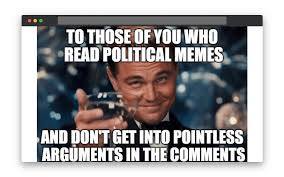FnF News
FNF News | Culture & Commentary
Published: June 20, 2025
By: Khadija Khan, Senior Media Analyst
“Why You Mad, Just Google It”: The Internet as Weapon, Witness, and War Zone in Modern America
United States — A viral phrase is cutting through America’s online noise like a hot knife through butter:
“Why you mad, just Google it. Oh snap, I forgot y’all don’t have the internet. #WhyYouMad.”
What seems like a cheeky insult on the surface is, in reality, a revealing cultural marker of where digital discourse in 2025 stands: defensive, tribal, sarcastic, and almost completely divorced from actual debate. In a society where irony has replaced argument, telling someone to “Google it” is no longer an invitation to learn—it’s a public declaration of superiority.
When Search Engines Become Smackdowns
For two decades, Google has symbolized the promise of instant knowledge. Now, it has become the modern version of “read a book,” served with digital contempt.
“Google it” used to be a helpful nudge. Now it’s a rhetorical grenade—an expression of contempt, not curiosity.
Digital sociologists argue this shift reflects broader polarization. According to Dr. Yasmine Clark at Georgetown University, “In the age of tribal internet behavior, saying ‘Google it’ is code for ‘You’re ignorant, and I’m done explaining basic reality to you.’”
In essence, the phrase turns access to information into a blunt instrument of digital power.
The Weaponization of Sarcasm
The full quote—“Why you mad, just Google it. Oh snap, I forgot y’all don’t have the internet”—has also been interpreted as a jab at state censorship, algorithmic echo chambers, and even low-information echo chambers that dominate some online spaces.
- In authoritarian regimes, access to platforms like Google is still restricted or filtered.
- In American political bubbles, search results are selectively interpreted based on confirmation bias.
- Among youth, sarcasm and meme replies are preferred over meaningful back-and-forth.
“When someone tells you to ‘Google it,’ they’re rarely inviting a discussion,” said Julian Greene, a tech ethicist. “They’re dismissing your legitimacy—often before you’ve said anything.”
Hashtag Politics: #WhyYouMad and the Rise of Meme-Driven Narratives
The hashtag #WhyYouMad has since been repurposed across TikTok, X, and Instagram as a catchall for debates about race, class, politics, and generational intelligence. Ironically, it began as satire and is now used both by right-leaning creators mocking progressive censorship and by left-leaning users dismissing conspiracy theories.
What’s clear is that facts no longer hold universal value—but viral tone, meme pacing, and ratio potential do.
In the digital battlefield of 2025, this matters. A single meme, reply, or sarcastic one-liner can now:
- Derail a political conversation
- End a public figure’s credibility
- Shift a trending topic
- Replace fact-checking entirely
The Google Gap and the New Digital Divide
The line “I forgot y’all don’t have the internet” reveals a new kind of inequality. While it sounds like a joke, it underscores real issues:
- Globally, over 2.7 billion people still lack stable internet access.
- In the U.S., underfunded public schools in rural or inner-city areas often leave students digitally disconnected.
- Many older Americans struggle with online navigation, yet they vote in higher numbers and form political opinions from limited sources.
“Internet literacy is the new literacy,” said Dr. Sarah Nduka, an education researcher. “Mocking someone for not knowing something is easy. Understanding why they don’t is harder—and more important.”
Performative Politics in the Age of the Clapback
The rise of reply culture has transformed online discourse into performance. Influencers, politicians, and activists don’t seek truth—they seek traction. If you can’t win with a clear, concise argument, win with a screenshot, a viral quote, or a public takedown.
This has blurred the line between journalism, opinion, and pure entertainment.
- Presidential candidates now meme their opponents.
- Activists generate more engagement from a TikTok than a press conference.
- Arguments end when someone posts a screenshot, not a source.
Conclusion: If Everything is a Joke, Who’s Still Listening?
“Just Google it” used to represent hope. Today, it’s a punchline—a line drawn in the sand. And “Why you mad?” is the anthem of a generation exhausted by debate and addicted to performance.
What was once a platform for truth has become a theater. The internet remains one of the greatest tools for liberty and learning. But increasingly, it is being used not to share knowledge, but to score points, silence dissent, and substitute speed for substance.
The question isn’t “why are you mad?” anymore. It’s whether anyone’s still serious.

